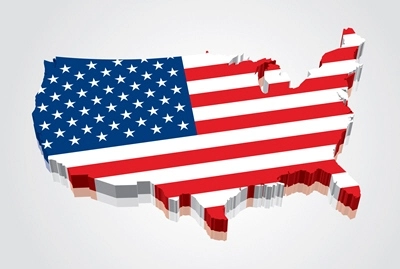Introduction to Trichotillomania
Trichotillomania, often referred to as hair-pulling disorder, is a psychological condition characterized by the recurrent, irresistible urge to pull out one's hair, resulting in noticeable hair loss. This disorder can affect individuals of any age, but it often begins in adolescence or early adulthood. In the United States, trichotillomania impacts a significant number of males, yet it remains underdiagnosed and misunderstood. This article aims to shed light on the condition, its impact on American males, and the available treatment options.
The Prevalence and Impact on American Males
While trichotillomania is often associated with females, it is estimated that up to 1% of the American population suffers from this disorder, with a notable portion being male. The impact of trichotillomania on American males can be profound, affecting their self-esteem, social interactions, and overall quality of life. Men with trichotillomania may experience feelings of shame and embarrassment, leading to social withdrawal and isolation. The visible hair loss can also lead to misdiagnosis, with many assuming the hair loss is due to other medical conditions such as alopecia.
Psychological Underpinnings of Trichotillomania
Trichotillomania is classified as an obsessive-compulsive and related disorder in the Diagnostic and Statistical Manual of Mental Disorders (DSM-5). The exact cause of trichotillomania is not fully understood, but it is believed to involve a combination of genetic, environmental, and neurobiological factors. For many American males, the onset of trichotillomania may be triggered by stress, anxiety, or traumatic life events. The act of pulling hair can provide temporary relief from these negative emotions, creating a cycle of behavior that is difficult to break.
Diagnosis and Challenges
Diagnosing trichotillomania in American males can be challenging due to the stigma associated with mental health issues and the reluctance of many men to seek help. A thorough evaluation by a mental health professional is essential, involving a detailed history of the hair-pulling behavior, its triggers, and its impact on daily life. It is crucial to differentiate trichotillomania from other causes of hair loss, such as medical conditions or side effects of medication.
Treatment Options and Strategies
Effective treatment for trichotillomania often involves a combination of therapeutic approaches. Cognitive-behavioral therapy (CBT), particularly a form known as habit reversal training, has been shown to be effective in helping individuals gain control over their hair-pulling behavior. This therapy focuses on increasing awareness of the urge to pull and developing alternative coping strategies. In some cases, medication such as selective serotonin reuptake inhibitors (SSRIs) may be prescribed to help manage underlying anxiety or depression.
Support groups and peer support can also play a vital role in the treatment of trichotillomania. Connecting with others who understand the challenges of living with this disorder can provide emotional support and practical advice. For American males, finding a support network that addresses the unique social and cultural pressures they face can be particularly beneficial.
Moving Forward: Raising Awareness and Reducing Stigma
Raising awareness about trichotillomania is crucial for improving diagnosis and treatment outcomes for American males. By reducing the stigma associated with mental health issues, more men may feel comfortable seeking help. Educational campaigns, support from healthcare providers, and open discussions about mental health can all contribute to a more supportive environment for those affected by trichotillomania.
In conclusion, trichotillomania is a significant yet often overlooked psychological disorder that can have a profound impact on American males. Understanding the condition, its causes, and the available treatment options is essential for improving the lives of those affected. With increased awareness and support, American males with trichotillomania can find the help they need to manage their symptoms and lead fulfilling lives.
Contact Us For A Fast And Professional Response

- Unveiling the Silent Saboteur: The Connection Between Scalp Infections and Hair Loss in American Males [Last Updated On: February 18th, 2025] [Originally Added On: February 18th, 2025]
- Revolutionizing Confidence: A Comprehensive Guide to Medical Wigs for Hair Loss in American Males [Last Updated On: February 20th, 2025] [Originally Added On: February 20th, 2025]
- Chemotherapy-Induced Hair Loss in American Males: Understanding, Coping, and Regrowth Strategies [Last Updated On: March 1st, 2025] [Originally Added On: March 1st, 2025]
- Decrypting the Hidden Layers: Hair Loss as a Latent Medical Dilemma [Last Updated On: March 2nd, 2025] [Originally Added On: March 2nd, 2025]
- Exploring the Impact of Thyroid Disorders on Hair Health: Understanding the Connection, Clinical Symptoms, and Effective Management Strategies [Last Updated On: March 3rd, 2025] [Originally Added On: March 3rd, 2025]
- Advancements in Surgical Hair Loss Treatments for Men [Last Updated On: March 4th, 2025] [Originally Added On: March 4th, 2025]
- Comprehensive Guide to Understanding and Managing Hair Loss in American Men [Last Updated On: March 5th, 2025] [Originally Added On: March 5th, 2025]
- Understanding Pediatric Hair Loss: Causes, Impact, and Treatment Options [Last Updated On: March 6th, 2025] [Originally Added On: March 6th, 2025]
- The Efficacy of Over-the-Counter Hair Loss Treatments: Scientific Evidence and Safety Considerations [Last Updated On: March 7th, 2025] [Originally Added On: March 7th, 2025]
- Embracing Holistic Approaches for Hair Health: A Comprehensive Guide for American Males [Last Updated On: March 8th, 2025] [Originally Added On: March 8th, 2025]
- The Genetic Basis of Male Pattern Baldness: Insights, Treatments, and Prevention Strategies [Last Updated On: March 9th, 2025] [Originally Added On: March 9th, 2025]
- Understanding the Link Between Stress and Hair Loss in American Males: A Comprehensive Medical Insight [Last Updated On: March 12th, 2025] [Originally Added On: March 12th, 2025]
- Hormonal Insights into Male Hair Loss: Causes, Treatments, and Lifestyle Impact [Last Updated On: March 13th, 2025] [Originally Added On: March 13th, 2025]
- Understanding Hair Loss in American Men: Separating Myths from Medical Realities [Last Updated On: March 15th, 2025] [Originally Added On: March 15th, 2025]
- Allergies and Hair Loss: Exploring the Link for American Males [Last Updated On: March 16th, 2025] [Originally Added On: March 16th, 2025]
- Understanding Hair Loss: Causes, Types, and Advanced Treatments for American Males [Last Updated On: March 17th, 2025] [Originally Added On: March 17th, 2025]
- Male Hair Loss: Understanding Genetic, Hormonal, and Lifestyle Risk Factors [Last Updated On: March 18th, 2025] [Originally Added On: March 18th, 2025]
- Topical Treatments for Hair Loss: Efficacy, Application, and Emerging Options [Last Updated On: March 18th, 2025] [Originally Added On: March 18th, 2025]
- Hair Loss in American Men: Psychological Impacts and Holistic Coping Strategies [Last Updated On: March 19th, 2025] [Originally Added On: March 19th, 2025]
- Revolutionizing Hair Loss Treatment: Innovations and Hope for American Males [Last Updated On: March 20th, 2025] [Originally Added On: March 20th, 2025]
- Diabetes and Hair Loss in American Males: Understanding the Link and Managing Risks [Last Updated On: March 21st, 2025] [Originally Added On: March 21st, 2025]
- Monogenic Hair Loss: Genetic Insights and Management for American Males [Last Updated On: March 21st, 2025] [Originally Added On: March 21st, 2025]
- Antidepressants and Hair Loss in Men: Mechanisms, Identification, and Management Strategies [Last Updated On: March 21st, 2025] [Originally Added On: March 21st, 2025]
- Alopecia Universalis: Understanding, Managing, and Coping for American Males [Last Updated On: March 21st, 2025] [Originally Added On: March 21st, 2025]
- Hair Loss in American Males: A Potential Indicator of Heart Disease Risk [Last Updated On: March 22nd, 2025] [Originally Added On: March 22nd, 2025]
- Effective Hair Loss Treatments for American Men: Medications and Mechanisms [Last Updated On: March 22nd, 2025] [Originally Added On: March 22nd, 2025]
- Drug-Induced Hair Loss in American Males: Causes, Symptoms, and Management Strategies [Last Updated On: March 22nd, 2025] [Originally Added On: March 22nd, 2025]
- Innovative Hair Loss Solutions for American Males: From Stem Cells to 3D Printing [Last Updated On: March 22nd, 2025] [Originally Added On: March 22nd, 2025]
- Hair Follicle Miniaturization: Understanding and Managing Hair Loss in American Males [Last Updated On: March 23rd, 2025] [Originally Added On: March 23rd, 2025]
- Steroids and Hair Loss in American Men: Causes, Risks, and Management Strategies [Last Updated On: March 23rd, 2025] [Originally Added On: March 23rd, 2025]
- Autoimmune Disorders and Hair Loss in American Males: Mechanisms, Conditions, and Treatments [Last Updated On: March 23rd, 2025] [Originally Added On: March 23rd, 2025]
- Male Hair Loss: Causes, Prevention, and Treatment Options for American Men [Last Updated On: March 23rd, 2025] [Originally Added On: March 23rd, 2025]
- Anabolic Steroids and Hair Loss: Mechanisms, Prevalence, and Management in American Males [Last Updated On: March 23rd, 2025] [Originally Added On: March 23rd, 2025]
- Hair Loss in Young American Males: Causes, Impacts, and Treatment Needs [Last Updated On: March 23rd, 2025] [Originally Added On: March 23rd, 2025]
- Telogen Effluvium in American Men: Causes, Symptoms, and Management Strategies [Last Updated On: March 23rd, 2025] [Originally Added On: March 23rd, 2025]
- Understanding Hair Loss: Causes, Treatments, and Hope for American Men [Last Updated On: March 23rd, 2025] [Originally Added On: March 23rd, 2025]
- Aromatherapy for Hair Loss: Benefits, Evidence, and Considerations for American Males [Last Updated On: March 23rd, 2025] [Originally Added On: March 23rd, 2025]
- Medical Hair Loss in Men: Causes, Management, and Prevention Strategies [Last Updated On: March 23rd, 2025] [Originally Added On: March 23rd, 2025]
- Aging Males and Hair Loss: Causes, Impacts, and Management Strategies [Last Updated On: March 24th, 2025] [Originally Added On: March 24th, 2025]
- Anemia and Hair Loss in American Males: Causes, Diagnosis, and Management Strategies [Last Updated On: March 24th, 2025] [Originally Added On: March 24th, 2025]
- Guide to Hair Loss Surgery Techniques for American Males [Last Updated On: March 24th, 2025] [Originally Added On: March 24th, 2025]
- Hair Cloning: A Breakthrough in Hair Loss Treatment for American Males [Last Updated On: March 24th, 2025] [Originally Added On: March 24th, 2025]
- Innovative Strategies to Mitigate Chemotherapy-Induced Hair Loss in American Males [Last Updated On: March 25th, 2025] [Originally Added On: March 25th, 2025]
- Vitamin Deficiencies and Hair Loss in American Males: Causes and Solutions [Last Updated On: March 25th, 2025] [Originally Added On: March 25th, 2025]
- Hair Extensions and Permanent Hair Loss: Risks for American Males [Last Updated On: March 25th, 2025] [Originally Added On: March 25th, 2025]
- Post-COVID Hair Loss in American Males: Causes, Symptoms, and Management Strategies [Last Updated On: March 26th, 2025] [Originally Added On: March 26th, 2025]
- LLLT: A Non-Invasive Hair Loss Solution for American Men [Last Updated On: March 26th, 2025] [Originally Added On: March 26th, 2025]
- American Men Triumph Over Hair Loss: Success Stories and Effective Treatments [Last Updated On: March 27th, 2025] [Originally Added On: March 27th, 2025]
- AI Revolutionizes Male Pattern Baldness Diagnosis and Treatment [Last Updated On: March 27th, 2025] [Originally Added On: March 27th, 2025]
- Androgenetic Alopecia: Advances in Treatment and Understanding Mechanisms [Last Updated On: March 27th, 2025] [Originally Added On: March 27th, 2025]
- Advanced Diagnostic Technologies for Hair Loss in American Men: A Comprehensive Overview [Last Updated On: March 27th, 2025] [Originally Added On: March 27th, 2025]
- Thyroid Disorders and Hair Loss in American Males: Causes and Management [Last Updated On: March 27th, 2025] [Originally Added On: March 27th, 2025]
- Immune System Disorders and Hair Loss in American Males: Mechanisms, Symptoms, and Treatments [Last Updated On: March 27th, 2025] [Originally Added On: March 27th, 2025]
- Managing Hair Loss: Medical Insights and Societal Perceptions for American Men [Last Updated On: March 27th, 2025] [Originally Added On: March 27th, 2025]
- Shock Loss After Hair Transplant: Causes, Timeline, and Management for American Males [Last Updated On: March 27th, 2025] [Originally Added On: March 27th, 2025]
- Hair Dyes and Hair Loss in American Males: Investigating the Correlation [Last Updated On: March 27th, 2025] [Originally Added On: March 27th, 2025]
- Postpartum Hair Loss: Causes, Effects, and Support Strategies for New Mothers [Last Updated On: March 27th, 2025] [Originally Added On: March 27th, 2025]
- PCOS-Like Symptoms and Hair Loss in American Males: Hormonal Insights [Last Updated On: March 27th, 2025] [Originally Added On: March 27th, 2025]
- PRP Therapy: A Promising Solution for Hair Loss in American Men [Last Updated On: March 28th, 2025] [Originally Added On: March 28th, 2025]
- High Blood Pressure and Hair Loss: Understanding the Indirect Links in American Males [Last Updated On: March 29th, 2025] [Originally Added On: March 29th, 2025]
- Androgenetic Alopecia: Genetic Insights and Emerging Treatments for Male Pattern Baldness [Last Updated On: March 29th, 2025] [Originally Added On: March 29th, 2025]
- Scalp Psoriasis in American Males: Impacts, Hair Loss, and Management Strategies [Last Updated On: March 29th, 2025] [Originally Added On: March 29th, 2025]
- Rogaine: Benefits, Risks, and Realistic Expectations for Hair Loss Treatment [Last Updated On: March 30th, 2025] [Originally Added On: March 30th, 2025]
- Understanding and Treating Hair Loss in Men: A Guide for Physicians [Last Updated On: March 31st, 2025] [Originally Added On: March 31st, 2025]
- Male Menopause and Hair Loss: Understanding and Managing Thinning in American Men [Last Updated On: April 2nd, 2025] [Originally Added On: April 2nd, 2025]
- Stem Cell Therapy: A New Hope for Hair Loss in American Males [Last Updated On: April 4th, 2025] [Originally Added On: April 4th, 2025]
- Hair Loss in American Men: Psychological Impacts and Holistic Coping Strategies [Last Updated On: April 4th, 2025] [Originally Added On: April 4th, 2025]
- Efficacy of Hair Loss Shampoos for American Males: Ingredients and Benefits Analyzed [Last Updated On: April 5th, 2025] [Originally Added On: April 5th, 2025]
- Hair Loss in American Males: Psychological Impacts and Holistic Treatment Approaches [Last Updated On: April 6th, 2025] [Originally Added On: April 6th, 2025]
- Understanding CCCA: Causes, Symptoms, and Management for American Males [Last Updated On: April 7th, 2025] [Originally Added On: April 7th, 2025]
- Minoxidil: Effective Hair Loss Treatment for American Men [Last Updated On: April 7th, 2025] [Originally Added On: April 7th, 2025]
- Hair Breakage vs. Hair Loss: Key Differences and Solutions for American Males [Last Updated On: April 7th, 2025] [Originally Added On: April 7th, 2025]
- Managing Hair Loss After Bariatric Surgery in American Males: Causes and Solutions [Last Updated On: April 9th, 2025] [Originally Added On: April 9th, 2025]
- Smoking and Hair Loss: Mechanisms, Evidence, and Mitigation Strategies for American Males [Last Updated On: April 11th, 2025] [Originally Added On: April 11th, 2025]
- Lifestyle Strategies to Combat Hair Loss in American Males [Last Updated On: April 11th, 2025] [Originally Added On: April 11th, 2025]
- Weight Loss Diets and Hair Loss: Insights for American Males [Last Updated On: April 12th, 2025] [Originally Added On: April 12th, 2025]
- Gastrointestinal Health and Hair Loss: Mechanisms, Impacts, and Management Strategies [Last Updated On: April 12th, 2025] [Originally Added On: April 12th, 2025]
- Dietary Strategies for American Men to Combat Hair Loss and Promote Hair Health [Last Updated On: April 13th, 2025] [Originally Added On: April 13th, 2025]
- Protein Shakes and Hair Loss: Understanding the Link for American Males [Last Updated On: April 13th, 2025] [Originally Added On: April 13th, 2025]
- Iron Supplements and Hair Loss Reversal in American Men: A Comprehensive Guide [Last Updated On: April 14th, 2025] [Originally Added On: April 14th, 2025]

















